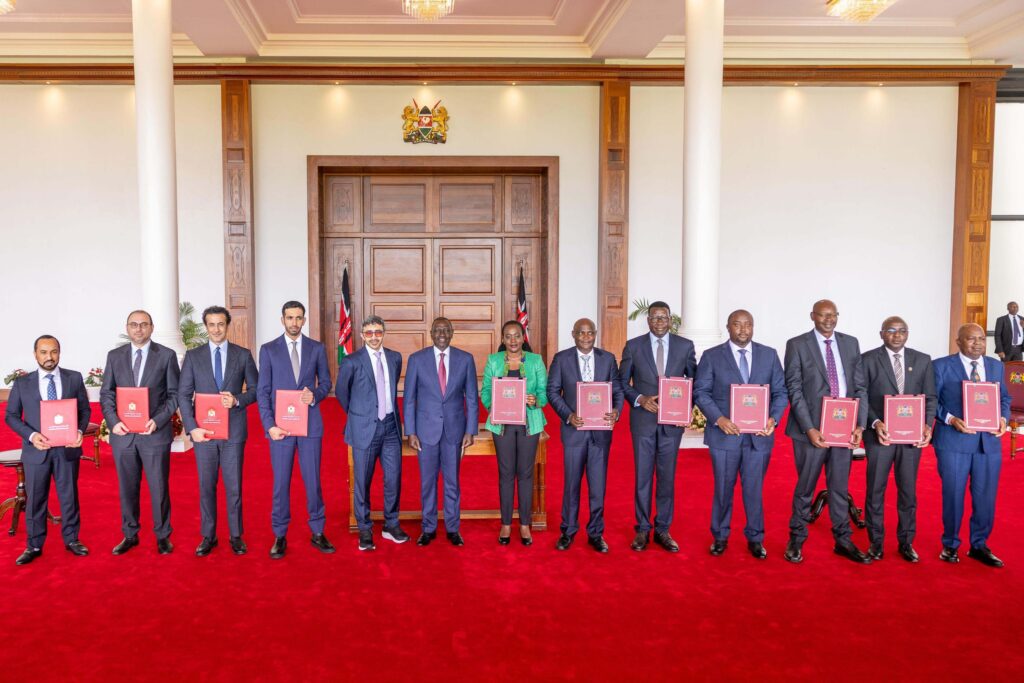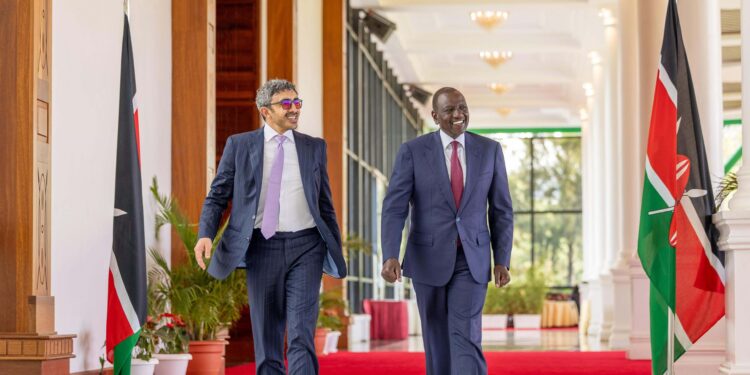Kenya has taken a significant leap forward in its bilateral relations with the United Arab Emirates (UAE) following the signing of seven pivotal Memoranda of Understanding (MoUs) aimed at enhancing cooperation across key sectors. The agreements were formalized during a high-level meeting at State House, Nairobi, witnessed by President William Ruto and His Highness Sheikh Abdullah Bin Zayed Al Nahyan, the UAE Deputy Prime Minister and Minister of Foreign Affairs.
This milestone follows the Comprehensive Economic Partnership Agreement (CEPA) signed in January in Abu Dhabi, further reinforcing Kenya’s rising stature as a prime destination for foreign investment.
The new agreements span critical sectors including economic development, energy, transport, customs, defense, and industrial infrastructure. A central highlight is the establishment of a Kenya-UAE Joint Business Council, designed to catalyze private sector collaboration, foster trade synergies, and deliver actionable policy recommendations to both governments.
In the transport sector, both countries committed to strategic cooperation in rail, aviation, and road infrastructure. The framework promotes joint investments, feasibility assessments, innovation in safety systems, and regulatory harmonization—key to advancing Kenya’s connectivity agenda.
A notable development is the formal partnership between the Kenya Railways Corporation and Etihad Rail Company. This collaboration will focus on knowledge exchange, technological testing, and industrial expansion within the railway sector—contributing to Kenya’s broader vision of transforming into a logistics and manufacturing hub.

Energy cooperation centers on scaling up renewable energy initiatives through wind, solar, and geothermal projects. The agreement emphasizes technology transfer, capacity building, and accelerating Kenya’s clean energy transition, aligning with global sustainability goals.
On customs and trade facilitation, the MoU aims to modernize cross-border operations by enhancing legal enforcement, improving intelligence sharing, and curbing illicit trade—ensuring a more secure and efficient trade ecosystem.
Defense collaboration also featured prominently. Both nations agreed to deepen military ties, strengthen institutional capacity, and promote regional peace, in line with national laws and international protocols.
Under the leadership of President William Ruto, Kenya continues to present a compelling case to global investors. His administration’s commitment to economic reforms, transparency, and infrastructure development has created an enabling environment for business. With notable progress in energy, transportation, ICT, and industrial sectors, Kenya stands out as a gateway to East and Central Africa—a market of immense potential.
These new agreements signal not just strengthened diplomatic ties, but a shared ambition to unlock sustainable economic growth and regional integration through strategic partnerships.










